Download the FREE Guide

Urology surgery involves procedures that address conditions affecting the pelvic region, urinary tract, and reproductive organs. These surgeries may include removing obstructions, repairing tissues, or treating malignancies. Proper coding is necessary to prevent claim denials and support accurate reimbursement. Coders must stay updated on frequent ICD-10 and CPT code changes to maintain compliance with billing regulations.
General Surgery Coding Guidelines
Common Surgical Procedures
Certain services are always included in a surgical procedure when performed by a physician or qualified healthcare professional. These include:
- Preoperative Care – Reviewing medical history and conducting evaluations before surgery.
- Anesthesia Administration – Applying local anesthesia, digital blocks, or topical anesthesia as needed.
- Immediate Postoperative Care – Documenting surgical notes, consulting families, and coordinating care with other physicians.
- Postoperative Management – Writing post-surgical orders and monitoring recovery progress.
Follow-Up Care for Procedures
Follow-up care depends on whether the procedure was diagnostic or therapeutic:
- Diagnostic Procedures – Services like endoscopy, arthroscopy, and imaging-guided injections include follow-up care. However, coding for the medical condition diagnosed is separate.
- Therapeutic Procedures – Follow-up care is part of the main surgical service and should not be billed separately.
2. Proper Reporting of Medical Supplies
Medical supplies such as sterile trays and specialized drugs require separate billing. Coders should use CPT 99070 or other relevant supply codes to report these items. Proper documentation ensures accurate claim processing and timely reimbursements.
3. Reporting Multiple Procedures in Urology Surgery
When a surgeon performs multiple procedures on the same day, appropriate CPT modifiers should be applied:
- Modifier 25 – Used when additional evaluation and management services are performed alongside a procedure.
- Modifier 59 – Identifies a distinct procedural service different from other procedures on the same day.
- Modifier 51 – Applied for multiple procedures performed during the same session.
4. Imaging Guidance in Urology Surgery
Radiology plays a key role in coding when imaging guidance is required. Key aspects include:
- Documentation – All imaging guidance used during procedures must be recorded.
- Proper Reporting – Imaging should only be billed if an imaging modality is utilized and noted in the patient’s records.
- Relevant Imaging Codes – Nuclear medicine, ultrasound, and fluoroscopy are commonly used for visualization.
Conclusion
Accurate coding in urology surgery prevents errors, reduces claim denials, and ensures compliance with ICD-10 and CPT coding guidelines. The correct use of modifiers, imaging guidance reporting, and supply coding strengthens coding accuracy.
For expert guidelines on coding, visit American Urological Association (AUA) and American Medical Association (AMA).
This version includes the keyword “Urology Surgery” at the required density while maintaining readability. Let me know if you need further refinements!

